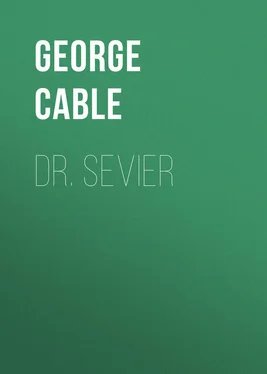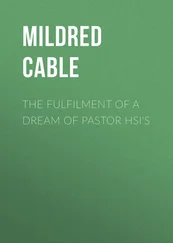George Cable - Dr. Sevier
Здесь есть возможность читать онлайн «George Cable - Dr. Sevier» — ознакомительный отрывок электронной книги совершенно бесплатно, а после прочтения отрывка купить полную версию. В некоторых случаях можно слушать аудио, скачать через торрент в формате fb2 и присутствует краткое содержание. Жанр: foreign_antique, foreign_prose, на английском языке. Описание произведения, (предисловие) а так же отзывы посетителей доступны на портале библиотеки ЛибКат.
- Название:Dr. Sevier
- Автор:
- Жанр:
- Год:неизвестен
- ISBN:нет данных
- Рейтинг книги:4 / 5. Голосов: 1
-
Избранное:Добавить в избранное
- Отзывы:
-
Ваша оценка:
- 80
- 1
- 2
- 3
- 4
- 5
Dr. Sevier: краткое содержание, описание и аннотация
Предлагаем к чтению аннотацию, описание, краткое содержание или предисловие (зависит от того, что написал сам автор книги «Dr. Sevier»). Если вы не нашли необходимую информацию о книге — напишите в комментариях, мы постараемся отыскать её.
Dr. Sevier — читать онлайн ознакомительный отрывок
Ниже представлен текст книги, разбитый по страницам. Система сохранения места последней прочитанной страницы, позволяет с удобством читать онлайн бесплатно книгу «Dr. Sevier», без необходимости каждый раз заново искать на чём Вы остановились. Поставьте закладку, и сможете в любой момент перейти на страницу, на которой закончили чтение.
Интервал:
Закладка:
“ I think so,” he said, looking down again and swinging his foot. Suddenly he brightened. “Doctor, isn’t this your carriage coming?”
“Yes; I told the boy to drive by here when it was mended, and he might find me.” The vehicle drew up and stopped. “Still, Richling,” the physician continued, as he stepped toward it, “you had better get a letter or two, yet; you might need them.”
The door of the carriage clapped to. There seemed a touch of vexation in the sound. Richling, too, closed his door, but in the soft way of one in troubled meditation. Was this a proper farewell? The thought came to both men.
“Stop a minute!” said Dr. Sevier to his driver. He leaned out a little at the side of the carriage and looked back. “Never mind; he has gone in.”
The young husband went upstairs slowly and heavily, more slowly and heavily than might be explained by his all-day unsuccessful tramp after employment. His wife still rested in the rocking-chair. He stood against it, and she took his hand and stroked it.
“Tired?” she asked, looking up at him. He gazed into the languishing fire.
“Yes.”
“You’re not discouraged, are you?”
“Discouraged? N-no. And yet,” he said, slowly shaking his head, “I can’t see why I don’t find something to do.”
“It’s because you don’t hunt for it,” said the wife.
He turned upon her with flashing countenance only to meet her laugh, and to have his head pulled down to her lips. He dropped into the seat left by the physician, laid his head back in his knit hands, and crossed his feet under the chair.
“John, I do like Dr. Sevier.”
“Why?” The questioner looked at the ceiling.
“Why, don’t you like him?” asked the wife, and, as John smiled, she added, “You know you like him.”
The husband grasped the poker in both hands, dropped his elbows upon his knees, and began touching the fire, saying slowly: —
“I believe the Doctor thinks I’m a fool.”
“That’s nothing,” said the little wife; “that’s only because you married me.”
The poker stopped rattling between the grate-bars; the husband looked at the wife. Her eyes, though turned partly away, betrayed their mischief. There was a deadly pause; then a rush to the assault, a shower of Cupid’s arrows, a quick surrender.
But we refrain. Since ever the world began it is Love’s real, not his sham, battles that are worth the telling.
CHAPTER VI.
NESTING
A fortnight passed. What with calls on his private skill, and appeals to his public zeal, Dr. Sevier was always loaded like a dromedary. Just now he was much occupied with the affairs of the great American people. For all he was the furthest remove from a mere party contestant or spoilsman, neither his righteous pugnacity nor his human sympathy would allow him to “let politics alone.” Often across this preoccupation there flitted a thought of the Richlings.
At length one day he saw them. He had been called by a patient, lodging near Madame Zénobie’s house. The proximity of the young couple occurred to him at once, but he instantly realized the extreme poverty of the chance that he should see them. To increase the improbability, the short afternoon was near its close, – an hour when people generally were sitting at dinner.
But what a coquette is that same chance! As he was driving up at the sidewalk’s edge before his patient’s door, the Richlings came out of theirs, the husband talking with animation, and the wife, all sunshine, skipping up to his side, and taking his arm with both hands, and attending eagerly to his words.
“Heels!” muttered the Doctor to himself, for the sound of Mrs. Richling’s gaiters betrayed that fact. Heels were an innovation still new enough to rouse the resentment of masculine conservatism. But for them she would have pleased his sight entirely. Bonnets, for years microscopic, had again become visible, and her girlish face was prettily set in one whose flowers and ribbon, just joyous and no more, were reflected again in the double-skirted silk barége ; while the dark mantilla that drooped away from the broad lace collar, shading, without hiding, her “Parodi” waist, seemed made for that very street of heavy-grated archways, iron-railed balconies, and high lattices. The Doctor even accepted patiently the free northern step, which is commonly so repugnant to the southern eye.
A heightened gladness flashed into the faces of the two young people as they descried the physician.
“Good-afternoon,” they said, advancing.
“Good-evening,” responded the Doctor, and shook hands with each. The meeting was an emphatic pleasure to him. He quite forgot the young man’s lack of credentials.
“Out taking the air?” he asked.
“Looking about,” said the husband.
“Looking up new quarters,” said the wife, knitting her fingers about her husband’s elbow and drawing closer to it.
“Were you not comfortable?”
“Yes; but the rooms are larger than we need.”
“Ah!” said the Doctor; and there the conversation sank. There was no topic suited to so fleeting a moment, and when they had smiled all round again Dr. Sevier lifted his hat. Ah, yes, there was one thing.
“Have you found work?” asked the Doctor of Richling.
The wife glanced up for an instant into her husband’s face, and then down again.
“No,” said Richling, “not yet. If you should hear of anything, Doctor” – He remembered the Doctor’s word about letters, stopped suddenly, and seemed as if he might even withdraw the request; but the Doctor said: —
“I will; I will let you know.” He gave his hand to Richling. It was on his lips to add: “And should you need,” etc.; but there was the wife at the husband’s side. So he said no more. The pair bowed their cheerful thanks; but beside the cheer, or behind it, in the husband’s face, was there not the look of one who feels the odds against him? And yet, while the two men’s hands still held each other, the look vanished, and the young man’s light grasp had such firmness in it that, for this cause also, the Doctor withheld his patronizing utterance. He believed he would himself have resented it had he been in Richling’s place.
The young pair passed on, and that night, as Dr. Sevier sat at his fireside, an uncompanioned widower, he saw again the young wife look quickly up into her husband’s face, and across that face flit and disappear its look of weary dismay, followed by the air of fresh courage with which the young couple had said good-by.
“I wish I had spoken,” he thought to himself; “I wish I had made the offer.”
And again: —
“I hope he didn’t tell her what I said about the letters. Not but I was right, but it’ll only wound her.”
But Richling had told her; he always “told her everything;” she could not possibly have magnified wifehood more, in her way, than he did in his. May be both ways were faulty; but they were extravagantly, youthfully confident that they were not.
Unknown to Dr. Sevier, the Richlings had returned from their search unsuccessful. Finding prices too much alike in Custom-house street they turned into Burgundy. From Burgundy they passed into Du Maine. As they went, notwithstanding disappointments, their mood grew gay and gayer. Everything that met the eye was quaint and droll to them: men, women, things, places, – all were more or less outlandish. The grotesqueness of the African, and especially the French-tongued African, was to Mrs. Richling particularly irresistible. Multiplying upon each and all of these things was the ludicrousness of the pecuniary strait that brought themselves and these things into contact. Everything turned to fun.
Читать дальшеИнтервал:
Закладка:
Похожие книги на «Dr. Sevier»
Представляем Вашему вниманию похожие книги на «Dr. Sevier» списком для выбора. Мы отобрали схожую по названию и смыслу литературу в надежде предоставить читателям больше вариантов отыскать новые, интересные, ещё непрочитанные произведения.
Обсуждение, отзывы о книге «Dr. Sevier» и просто собственные мнения читателей. Оставьте ваши комментарии, напишите, что Вы думаете о произведении, его смысле или главных героях. Укажите что конкретно понравилось, а что нет, и почему Вы так считаете.












